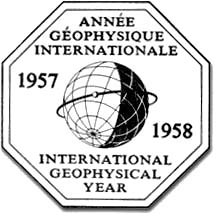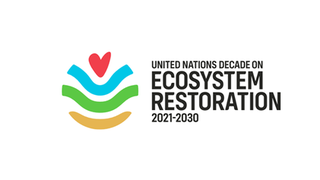 W
WThe International Year of Astronomy (IYA2009) was a year-long celebration of astronomy that took place in 2009 to coincide with the 400th anniversary of the first recorded astronomical observations with a telescope by Galileo Galilei and the publication of Johannes Kepler's Astronomia nova in the 17th century. The Year was declared by the 62nd General Assembly of the United Nations. A global scheme, laid out by the International Astronomical Union (IAU), was also endorsed by UNESCO, the UN body responsible for educational, scientific, and cultural matters.
 W
WThe International Year of Biodiversity (IYB) was a year-long celebration of biological diversity and its importance, taking place internationally in 2010. Coinciding with the date of the 2010 Biodiversity Target, the year was declared by the 61st session of the United Nations General Assembly in 2006.
 W
WThe International Year of Chemistry 2011 was a year-long commemorative event for the achievements of chemistry and its contributions to humankind. The recognition for chemistry was made official by the United Nations in December 2008. Events for the year were coordinated by the International Union of Pure and Applied Chemistry (IUPAC), and by UNESCO, the United Nations Educational, Scientific, and Cultural Organization.
 W
WUNESCO proclaimed 1979 as the International Year of the Child. The proclamation was signed on January 1, 1979, by United Nations Secretary General Kurt Waldheim. A follow-up to the 1959 Declaration of the Rights of the Child, the proclamation was intended to draw attention to problems that affected children throughout the world, including malnutrition and lack of access to education. Many of these efforts resulted in the Convention on the Rights of the Child in 1989.
 W
WThe year 2007 was proposed and declared as the (International) Year of the Dolphin (YoD) by the United Nations and United Nations Environment Programme (UNEP), along with the UN Convention on Migratory Species, and its specialized agreements on dolphin conservation ACCOBAMS and ASCOBANS and the WDCS.
 W
WThe Global Universities Partnership on Environment for Sustainability (GUPES) is a United Nations Environment Program (UNEP) flagship programme, hosted by the Environmental Education and Training Unit (EETU), at the UNEP Headquarters in Nairobi, Kenya. The partnership seeks to increase active environmental commitment and action with higher education institutions and policy institutions globally.
 W
WThe Decade of Education for Sustainable Development (DESD) 2005-2014 was an Education for Sustainable Development (ESD) initiative of the United Nations. The Decade was delivered by UNESCO as lead agency, and gave rise to Regional Centres of Expertise (RCE) networks, and the GUPES universities' partnership. The launch of the United Nations Decade of Education for Sustainable Development started a global movement to reorient education to address the challenges of sustainable development. Building on the achievement of the Decade, stated in the Aichi-Nagoya Declaration on ESD, UNESCO endorsed the Global Action Programme on ESD (GAP) in the 37th session of its General Conference. Acknowledged by UN general assembly Resolution A/RES/69/211 and launched at the UNESCO World Conference on ESD in 2014, the GAP aims to scale-up actions and good practices. UNESCO has a major role, along with its partners, in bringing about key achievements to ensure the principles of ESD are promoted through formal, non-formal and informal education.
 W
WThe year 2011 was declared the International Year of Forests by the United Nations to raise awareness and strengthen the sustainable management, conservation and sustainable development of all types of forests for the benefit of current and future generations.
 W
WThe International Geophysical Year was an international scientific project that lasted from 1 July 1957 to 31 December 1958. It marked the end of a long period during the Cold War when scientific interchange between East and West had been seriously interrupted. Sixty-seven countries participated in IGY projects, although one notable exception was the mainland People's Republic of China, which was protesting against the participation of the Republic of China (Taiwan). East and West agreed to nominate the Belgian Marcel Nicolet as secretary general of the associated international organization.
 W
W1972 was proclaimed International Book Year by the United Nations and made effective by UNESCO.
 W
WThe International Day of Forests was established on the 21st day of March, by resolution of the United Nations General Assembly on November 28, 2012. Each year, various events celebrate and raise awareness of the importance of all types of forests, and trees outside forests, for the benefit of current and future generations. Countries are encouraged to undertake efforts to organize local, national, and international activities involving forests and trees, such as tree planting campaigns, on International Day of Forests. The Secretariat of the United Nations Forum on Forests, in collaboration with the Food and Agriculture Organization, facilitates the implementation of such events in collaboration with governments, the Collaborative Partnership on Forests, and international, regional and subregional organizations. International Day of Forests was observed for the first time on March 21, 2013.
 W
WThe International Heliophysical Year is a UN-sponsored scientifically driven international program of scientific collaboration to understand external drivers of planetary environments and universal processes in solar-terrestrial-planetary-heliospheric physics. The IHY will focus on advancements in all aspects of the heliosphere and its interaction with the interstellar medium. This effort culminates in the "International Heliophysical Year" (IHY) in 2007-2008. The IHY concluded in February, 2009, but was largely continued via the International Space Weather Initiative (ISWI)
 W
WInternational Women's Year (IWY) was the name given to 1975 by the United Nations. Since that year March 8 has been celebrated as International Women's Day, and the United Nations Decade for Women, from 1976 to 1985, was also established.
 W
W2022 will be considered as the International Year of Basic Sciences for Sustainable Development by the 76th session of the United Nations General Assembly, stressing that the applications of basic sciences are vital for advances in medicine, industry, agriculture, water resources, energy planning, environment, communications and culture, and that basic sciences rupture technologies respond to the needs of humankind by providing access to information and increasing societal well-being, and promoting peace through improved collaboration toward Sustainable Development Goals (SDGs).
 W
WThe International Year of Indigenous Languages was a United Nations observance in 2019 that aimed to raise awareness of the consequences of the endangerment of Indigenous languages across the world, with an aim to establish a link between language, development, peace, and reconciliation.
 W
WThe International Year of Peace was recognized in 1986 by the United Nations. It was first proposed during the UN conference of November, 1981 by the United Nations Economic and Social Council, with a date associated with the fortieth anniversary of the establishment of the UN.
 W
WIn December 2018, the United Nations General Assembly adopted a Resolution declaring 2020 as the International Year of Plant Health (IYPH). The purpose of the IYPH was to raise global awareness on how protecting plant health can help end hunger, reduce poverty, protect the environment, and boost economic development.
 W
W2016 was declared as the International Year of Pulses by the sixty eighth session of the United Nations General Assembly on December 20, 2013. The Food and Agriculture Organization (FAO) of the United Nations has been nominated to declare a year for pulses, more commonly known as legumes.
 W
WThe International Year of Shelter for the Homeless (IYSH) was recognized in 1987 by the United Nations. It was first declared, in principle, in UN resolution 36/71 in 1981, and proclaimed officially in 1982 in resolution 37/221. It was mainly aimed at improving shelter / housing for the poor in general, especially in developing countries. It was also a follow-up to the Habitat I conference in 1976.
 W
WThe International Day of Yoga has been celebrated annually on 21 June since 2015, following its inception in the United Nations General Assembly in 2014. Yoga is a physical, mental and spiritual practice which originated in India. The Indian Prime Minister, Narendra Modi, in his UN address in 2014, had suggested the date of 21 June, as it is the longest day of the year in the Northern Hemisphere and shares a special significance in many parts of the world.
 W
WThe International Year of Light and Light-based Technologies 2015 or International Year of Light 2015 was a United Nations observance that aimed to raise awareness of the achievements of light science and its applications, and its importance to humankind. Under the leadership of UNESCO, the IYL 2015 brought together hundreds of national and international partners to organize more than 13,000 activities in 147 countries. The audience reached by the IYL 2015 is estimated to be over 100 million.
 W
WA national or international awareness day or observance is a date usually set by a major organisation or government to commemorate a public health or ethical cause of importance on a national or international level.
 W
WInternational Year of Microcredit is a special event of the United Nations which took place in the year 2005. The event highlighted microfinance as an instrument for socioeconomic development.
 W
WThe year 2005 was named the World Year of Physics, also known as Einstein Year, in recognition of the 100th anniversary of Albert Einstein's "Miracle Year", in which he published four landmark papers, and the subsequent advances in the field of physics.
 W
WThe year 2004 was declared the International Year of Rice by the United Nations, noting that rice is a staple food for more than half the world's population, and affirming the need to heighten awareness of the role of rice in alleviating poverty and malnutrition.
 W
WThe year 2008 was declared the International Year of Sanitation by the United Nations in conjunction with the Water for Life Decade.
 W
WWorld Space Week (WSW) is an annual holiday observed from October 4 to 10 in over 95 nations throughout the world. World Space Week is officially defined as "an international celebration of science and technology, and their contribution to the betterment of the human condition".
 W
WThe United Nations General Assembly declared 2004 as the International Year to Commemorate the Struggle against Slavery and its Abolition.
 W
WThe Time of Remembrance and Reconciliation for Those Who Lost Their Lives during the Second World War is an annual international day of remembrance designated by Resolution 59/26 of the United Nations General Assembly on November 22, 2004. The resolution urges 'Member States, organizations of the United Nations system, non-governmental organizations and individuals' to pay tribute to the victims of World War II.
 W
WThe United Nations Decade on Ecosystem Restoration runs from 2021 to 2030. Similar to other nature related international decades, its purpose is to promote the United Nation's environmental goals. Specifically, to facilitate global cooperation for the restoration of degraded and destroyed ecosystems. Along with fostering efforts to combat climate change, safeguard biodiversity, food security, and water supply. While much focus is on promoting restoration activity by national governments, the UN also wishes to promote such efforts from other actors, ranging from the private sector and NGOs to regular individuals.
 W
WEndorsed in December 2017, the United Nations Decade of Family Farming 2019-2028 seeks to place family farming at the center of national public policies and investments. In declaring this decade, the United Nations General Assembly recognized the importance of family farming in reducing poverty and improving global food security. The UN Decade of Family Farming is led by the Food and Agriculture Organization (FAO) and the International Fund for Agricultural Development (IFAD) in collaboration with governments and civil society organizations.
 W
WWorld Ocean Day is an international day that takes place annually on 8 June. The concept was originally proposed in 1992 by Canada's International Centre for Ocean Development (ICOD) and the Ocean Institute of Canada (OIC) at the Earth Summit – UN Conference on Environment and Development (UNCED) in Rio de Janeiro, Brazil. "World Oceans Day" was officially recognised by the United Nations in 2008. The international day supports the implementation of worldwide Sustainable Development Goals (SDGs) and fosters public interest in the protection of the ocean and the sustainable management of its resources. }}